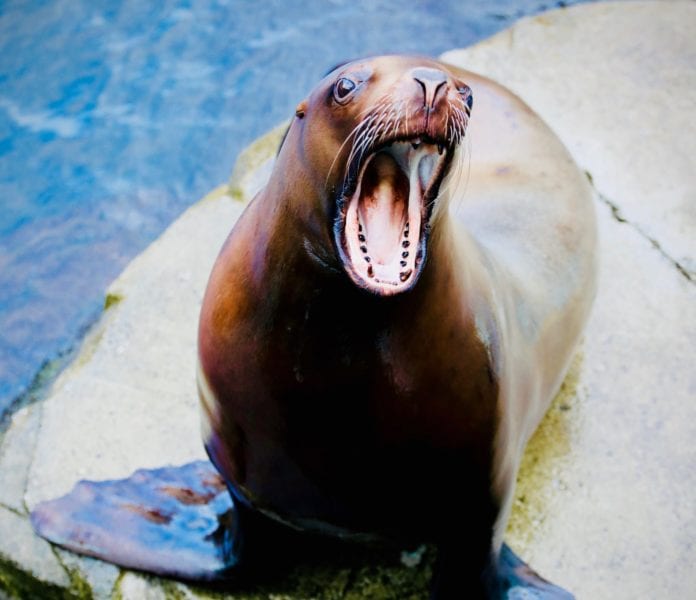
Veterinarians at the Alaska SeaLife Center in Seward are anticipating the birth this spring of a Steller sea lion pup by 17-year-old Mara, sired by Pilot, a 10-year-old male residing at ASLC.
“Estimating a delivery date is imprecise in any species, but in Steller sea lions it is even harder since we have only tracked a few pregnancies,” said Dr. Carrie Goertz, director of animal health and lead veterinarian at the center. “Nevertheless, I expect Mara to give birth earlier than all of our other births since I was able to detect the developing pup about a month before other cases,” she said.
ASLC mammalogists train animals to voluntarily participate in their own health care, which eases medical procedures like those involved in monitoring pregnancies.
Four other Steller sea lion births have occurred at the center over the years, all from another female named Eden, who now lives at the Mystic Aquarium in Connecticut.
“The Alaska SeaLife Center is one of only three aquariums in North America that house Steller sea lions,” said husbandry curator Lisa Hartman. “We are optimistic that the birth of Mara’s pup will continue to contribute to the understanding and knowledge base of this endangered species. This pregnancy and birth also contribute to the collaborative management of this species.”
Training for ultrasounds and radiographs is typically completed well before an animal even becomes pregnant.
“Training is beneficial to the animal and staff because it provides tools to allow us to track mom and pup to verify that mom is doing well and the pup is growing adequately,” said Jamie Mullins, assistant marine mammal curator. “Training voluntary behaviors also ensures that the animal and trainer are comfortable.”
To better understand more about stresses of reproduction in Steller sea lions, ASLC researchers utilized the center’s marine mammal training program. Blood samples were taken over the course of a year to measure levels of cortisol, a hormone associated with stress response, in pregnant and nonpregnant females. Findings indicated animals trained to voluntarily participate in health care had lower cortisol levels than those who required physical restraint, ASLC officials said.





